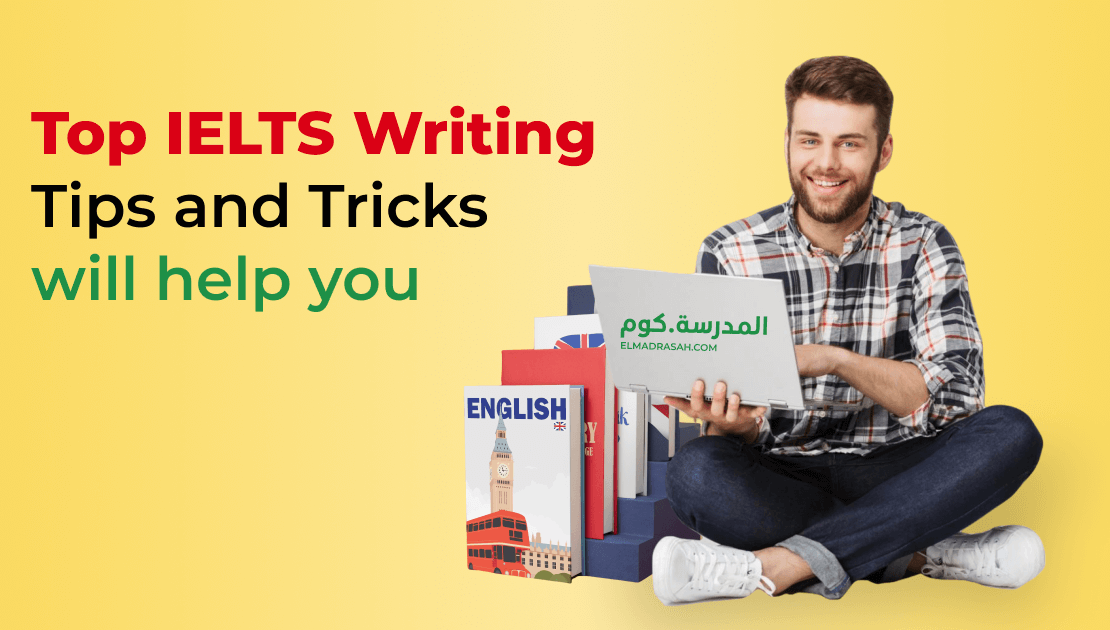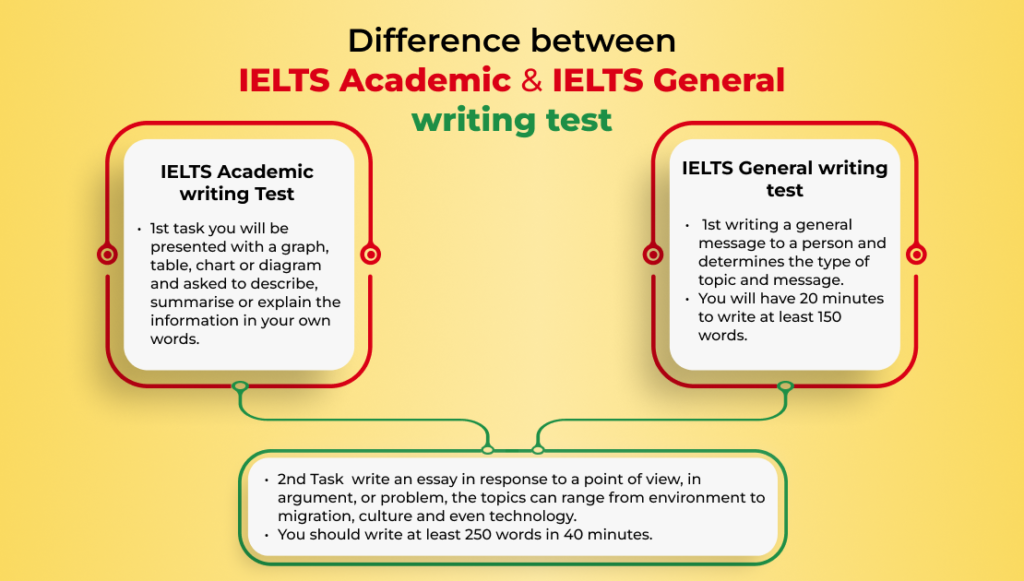
Achieving a high score on the IELTS Writing Test is one of the important questions on the minds of many who attend the IELTS test, it opens the door to many questions such as What are its contents, how long the exam takes, and how can I practice it?
There are some tips and tricks that will also help you understand the different types of questions that are asked in the IELTS Writing test, we will learn about them in this article.
IELTS Writing
The IELTS Writing Test is part of the IELTS exam and is divided into two tasks.
The topics of these assignments are of general interest and suitable for undergraduate students.
The written test is on a computer for the learning and training modules.
IELTS Academic and General offer a two-task writing test.
What is the IELTS Writing format?
IELTS Writing is the second task of your IELTS test in four categories: IELTS listening, IELTS reading, IELTS writing, and speaking, which has two versions:
-
Academic
-
General
In the writing part you need to produce two pieces of writing in the IELTS Writing test at 60 minutes:
1. Task 1 which is different in the 2 versions of IELTS by:
- In the academic version of IELTS Writing, for the first task, you will be presented with a graph, table, chart, or diagram and asked to describe, summarise or explain the information in your own words.
- In the general version of IELTS Writing, the first task is about writing a general message to a person and determining the type of topic and message.
You will have 20 minutes to write at least 150 words.

2. Task 2, which is the same in 2 versions of IELTS:
you will be asked to write an essay in response to a point of view, argument, or problem, the topics can range from the environment to migration, culture, and even technology.
You should write at least 250 words in 40 minutes.
In this second task, you will be presented with an essay topic and you will be scored based on your ability to respond to the topic.
The Top IELTS Writing Tips and Tricks
There are many IELTS writing tips and tricks that can help you pass your IELTS writing test divided into:
*Some tips while preparing for the exam:
- The most important tip is to practice as much as possible, this will help you to become familiar with the different question types and how to structure your answers.
- Additionally, it is also important to read a variety of IELTS writing samples so that you can see how other people have tackled the same questions.
- Practice writing essays in the same format as the IELTS Writing exam, to practice your essay writing skills regularly.
*There are a few things that you can do to ensure that you get a high score on the IELTS Writing exam:
- Make sure that you understand the question and what is being asked of you. If you are unsure, ask your teacher or tutor for clarification.
- Plan your essay before you start writing, this will help you to organize your thoughts and to ensure that your essay flows smoothly.
- Use a variety of sentence structures in your essay to make it more interesting to read, avoid using the same sentence structure over and over again as this can make your essay sound monotonous.
- Use connectives such as ‘however’, ‘in addition, ‘moreover’, etc., to join ideas together and create cohesion in your essay.
- Finally, proofread your essay carefully before you submit it.
By following these tips, you will be well on your way to getting a high score on the IELTS Writing exam.
By following these tips, you will be well on your way to passing your IELTS writing test.
You can get good training to prepare for the IELTS test in all its parts with El Madrasa.com provides online IELTS courses for the academic and general IELTS types, which cover all the fundamentals of the four IELTS syllabus tests.
There are many benefits to using this platform:
- Arab and foreign specialists as teachers to guarantee a high level of professional expertise.
- Flexibility in appointment scheduling.
- The advantage of having both a personal session and an online lesson at the same time is that the lessons are offered directly between the teacher and the student.
- An integrated training hour that can be used wherever you are and is customized to your needs.
- Determine your course level to make sure you meet the prerequisites for the IELTS essential, and identify your areas of weakness so you may work with your teacher to improve them.
















